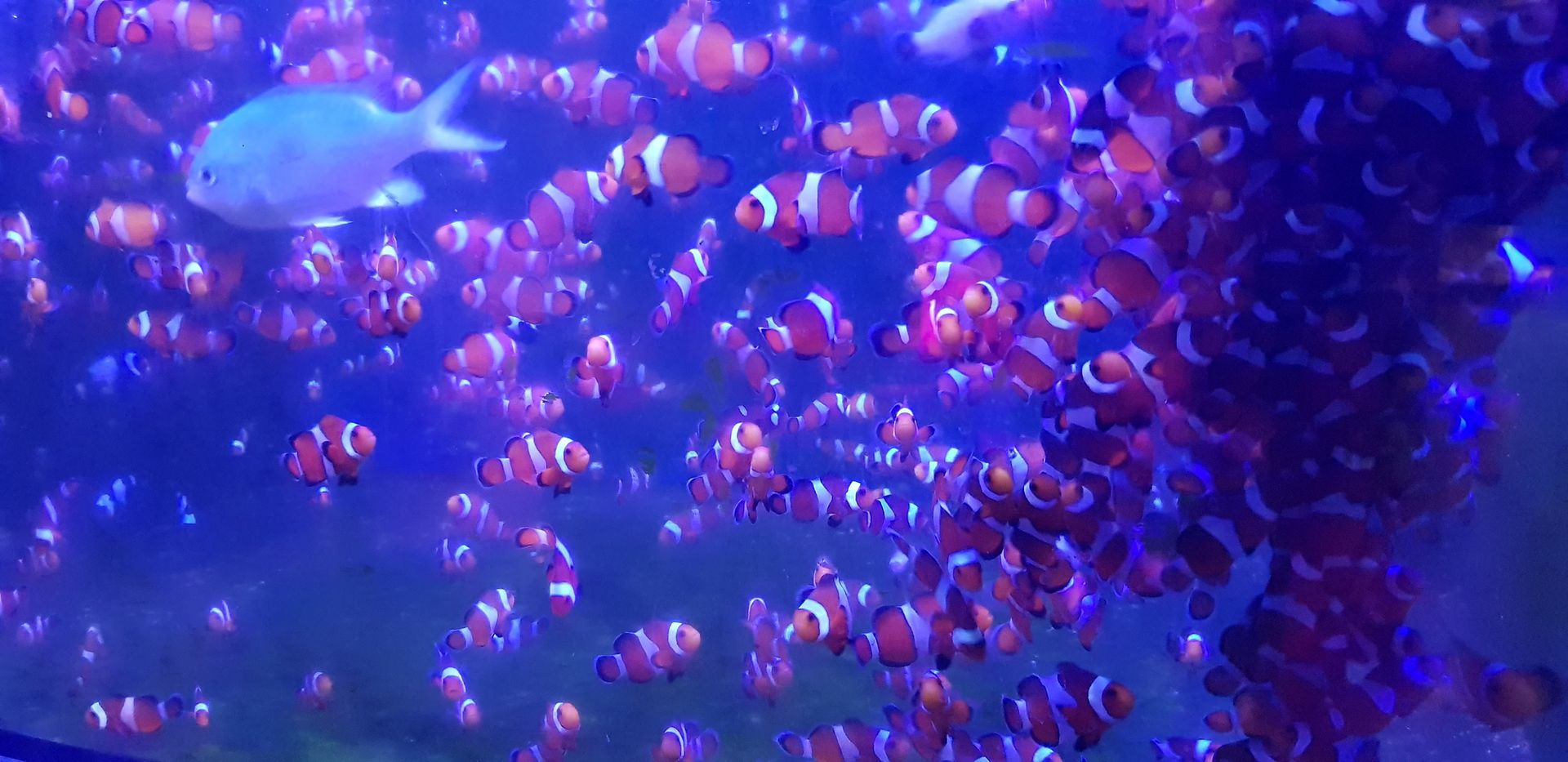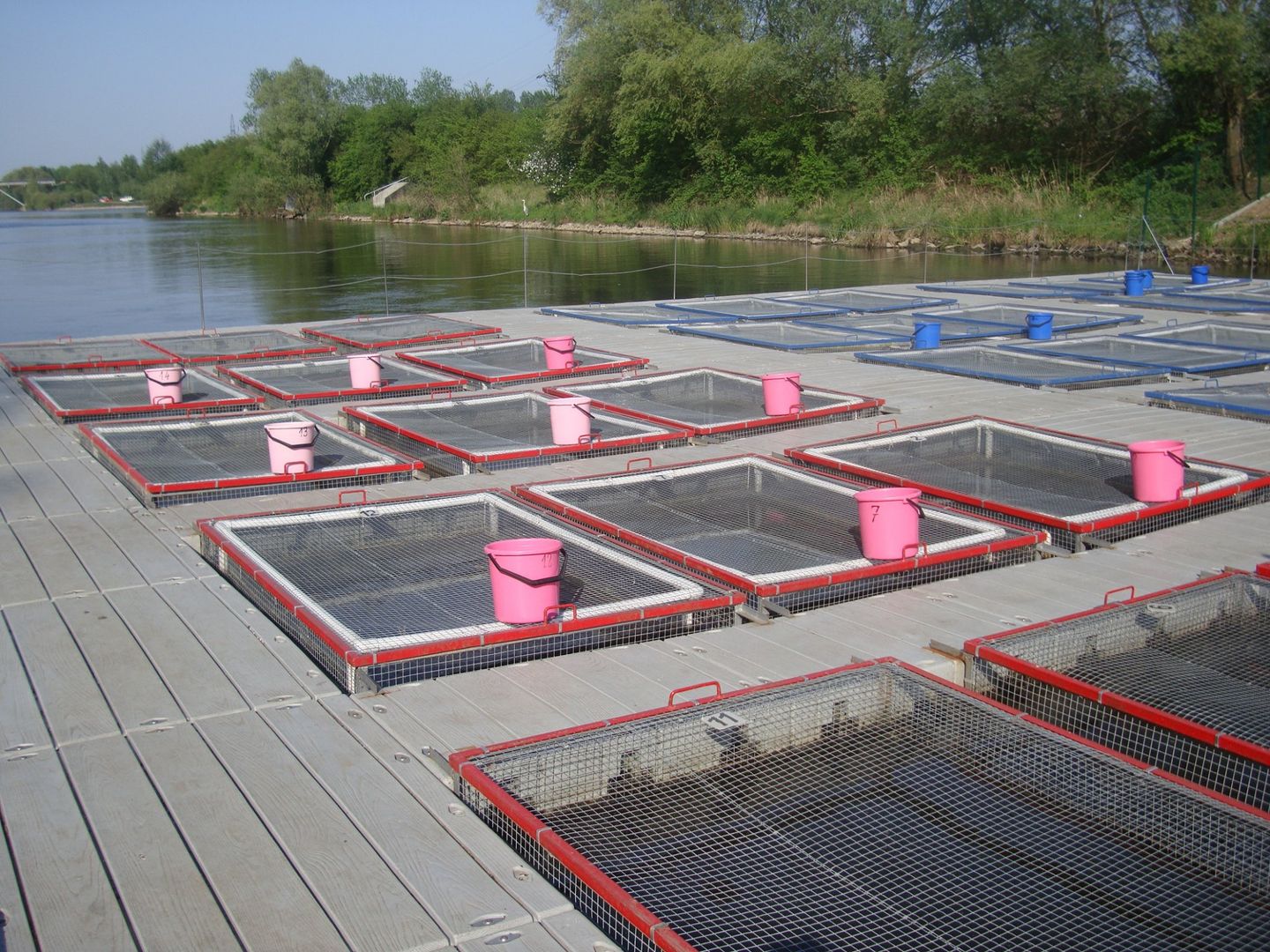Ichthyology and Aquaculture is a field of study that meets the needs of the modern world, the priority of which is rational management of the aquatic environment and protection of its resources.
First cycle studies in the field of: Ichthyology and Aquaculture
- full-time: 7 terms (3.5 year), recruitment: May 2021
First cycle studies finish with a diploma dissertation defence and obtaining of the B.Sc. degree.
Specialisations to choose from:
- Biotechnology of fisheries and aquaculture
- Exploitation of fishery resources of the aquatic environment
Second cycle studies in the field of: Ichthyology and Aquaculture
- full-time: 3 terms (1.5 year), recruitment: January 2022 (for holders of B.Sc. degree)
Second cycle studies finish with a master's degree dissertation defence and obtaining of the M.Sc. degree
Specialisations to choose from:
- Aquaculture
- Exploitattion of biological aquatic resources
- Protection of the aquatic environment
Watch a film about the field of study
During the first and second cycle studies, you may complete a part of your course within the Erasmus+ programme (enter), which allows you not only to gain new professional experience but also to make new contacts with people from all over the world.
The programme of studies is implemented according to the principles of the European Credit Transfer System (ECTS), which means that a strictly defined number of points is assigned to individual courses. This system makes it possible to complete part of the studies at other universities, also abroad, where the credits earned during the trip will be transferred and recognized upon returning to your home university.
Online recruitment system - enter
What can we offer?
Students of Ichthyology have modern laboratories and a unique didactic infrastructure at their disposal, including an ichthyological museum, aquarium rooms and specialist laboratories. The faculty also has a field experimental station where students conduct practical classes to prepare for professional work related to aquaculture and aquatic environmental management. During classes you will be able to go to sea on our research vessel from the port in Dziwnów. During their studies, students can take part in foreign trips as part of the Faculty's cooperation with scientific institutions in Europe. At our Faculty we place great emphasis on current problems connected with water management, planning of responsible strategies of sea, lake and river resource exploration as well as ways of restoring the natural environment through renaturalization procedures. Thanks to cooperation with many economic entities, we have the possibility to conduct practical classes and students gain the opportunity to establish direct contacts with future employers.


What will you learn?
During your classes, you will learn, e.g.:
- to plan the management in open waters and special fishing grounds,
- to analyse the physical, chemical and biological factors of waters as well as determine the condition of surface waters and identify the courses of action to improve their condition,
- to use molecular methods in breeding programmes and biodiversity conservation strategies,
- to design breeding facilities used for aquaculture,
- to identify and prevent the spread of diseases in the aquatic environment,
- to carry out controlled breeding and rearing of fry of valuable species,
- to analyse the resources of different types of water bodies and draw up the necessary documentation,
- to acquire and make rational use of raw materials of aquatic origin.
Example major courses in the first cycle studies:
fish anatomy and embryology, hydrochemistry, bioengineering of the aquatic environment, hydrozoology, genetics, ecology and marine biology, water rescue, hydrobotany, aquaculture, angling, basics of free diving, fish hatchery.
In the second cycle master's degree studies, the courses depend on the choice of a specialisation.
Examples of major courses done in the second cycle studies include e.g. biological water resources, ecology and protection of the aquatic environment, fish genetics and selection, mariculture, aquaristics, hydroacoustics and radiolocation in fisheries, water monitoring, water protection and reclamation, shellfish and mussel farming, diseases of aquatic organisms, systematics of commercial fish, selectivity of fishing gear.
What can you do after the studies?
Graduates of the field of study are specialists who get employed:
- in public administration units,
- in water quality assessment and environmental protection laboratories,
- in units implementing modern water reclamation technologies,
- in units involved in the organisation of water management,
- on vessels of the national and international fleet,
- in the design of modern fishing gear based on specialised IT technology,
- in aquaculture centres,
- in supervision of work in hatchery stocking centres,
- in the organisation and operation of aquatourism.
Additional opportunities
The graduation diploma in Ichthyology and Aquaculture enables students to obtain a fishing licence and an underwater fishing licence (after the 1st cycle). In addition, students can complete a diving course and a motor-boat helmsman course during their studies.
In addition, students can take part in paid trainings enabling them to board a vessel and apply for a seaman's book. Examples of training topics:
- Individual Rescue Techniques;
- Fire Protection Foundations;
- Own Safety and Shared Responsibility;
- Basic Principles of Medical Care IMO 1.13.
Trainings are conducted by e.g.:
- Maritime Economy Vocational Training Centre in Szczecin;
- CSM Zenit;
- Marine Rescue Training Centre - Maritime University of Szczecin;
- Maritime Safety & Security.
Detailed information about the rules of admission to the first year of fisrt and second cycle studies in Ichthyology and Aquaculture is available on the website of the Faculty of Food Sciences and Fisheries.
You're kindly invited!!!